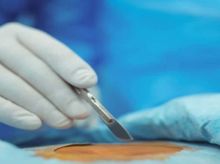Cyst Removal in Dong Thap
Search and Compare the Best Clinics and Doctors at the Lowest Prices for Cyst Removal in Dong Thap




































































































































No Time?
Tell us what you're looking for and we'll reach out to the top clinics all at once
What does a Cyst Removal Procedure Involve?
Cyst removal usually begins with the application of local anaesthesia around the cyst area to numb it. After sufficiently numbing the area, the surgeon will cut into the skin to remove the cyst. If the cyst is large, a more extensive cut might be necessary to extract it.
Sometimes, the surgeon might opt to 'pop' and drain the cyst before removing it, but this method increases the chances of the cyst recurring. After the cyst is fully removed, the surgeon will stitch up the incision. This entire process can be performed in a day-care surgery centre or a doctor's clinic and does not typically require an overnight stay at the hospital.
How Long Should I Stay in Dong Thap for a Cyst Removal Procedure?
The recovery process post a cyst removal procedure is typically swift and doesn't necessitate staying on for long after the surgery. However, if the removed cyst is large or is located in a sensitive area, there might be a need to stay in the hospital overnight for close monitoring.
Several factors can affect the duration of the stay. For instance, if you live a significant distance away from Dong Thap, it might be beneficial to plan for a minimum of 48 hours stay post-surgery to ensure there are no immediate post-operative complications. However, the decision ultimately depends on your doctor's advice and your unique health situation.
What's the Recovery Time for Cyst Removal Procedures in Dong Thap?
The recovery period for cyst removal in Dong Thap is usually relatively swift, often with patients returning to standard procedures within a week. Factors such as the cyst's size and location can influence this. More significant or sensitively located cysts potentially necessitate longer recovery times.
Post-procedure, patients may experience tenderness in the affected area, which can usually be managed with over-the-counter painkillers. Antibiotics might also be prescribed to ward off potential infection. Your healthcare provider will provide instructions on how to keep the wound clean and dry. Any signs of infection, including redness, swelling, or intense pain should be reported immediately. It's recommended to shun strenuous activities until your healthcare provider gives the green light.
What's the Success Rate of Cyst Removal Procedures in Dong Thap?
Cyst removal operations in Dong Thap typically report a high success rate, effectively eradicating the cyst without incident of reoccurrence. This success rate can be influenced by the type and position of the cyst, alongside the broader health condition of the patient.
A critical factor in successful cyst removal is ensuring that the entire cyst, inclusive of the cyst wall, is extracted. On occasions where a section of the cyst remains, the chance of reoccurrence is escalated.
Remember, no medical operation is exempt from the possibility of risk. Therefore, it's always judicious to discuss potential risks alongside likely success rates with your healthcare provider.
Are there Alternatives to Cyst Removal Procedures in Dong Thap?
While surgical cyst removal is the standard treatment, you may explore alternative approaches based on your individual circumstances. Some potential alternatives are:
- Observation: In situations when the cyst is asymptomatic and not growing, doctors may suggest monitoring the cyst over time.
- Needle aspiration or injection: This treatment drains the cyst or injects medication to shrink it.
- Laser treatments: Some types of cysts may be treated by vaporizing them.
- Home treatments such as warm compresses can aid in reducing inflammation and tenderness, but not necessarily as a cure for cyst removal.
It's worth mentioning that these alternatives might not be appropriate for everyone, and each patient needs personalised medical advice to choose the most suitable option.
What sort of Aftercare is Required for Cyst Removal Procedures in Dong Thap?
Post-procedure care following a cyst removal procedure in Dong Thap is essential for effective healing and prevention of potential complications. Keeping the surgery area clean and dry is of topmost importance, and the dressings should be replaced as per your doctor's suggestions. If you experience any discomfort, suitable over-the-counter medication can provide relief.
Your healthcare provider should give guidelines on recognizing infection signs such as increased pain, redness, swelling or warmth around the cut. If you notice these symptoms or if the wound is not healing as expected, immediate contact with your doctor is advised. Strenuous activities or anything that can strain the surgery site should be avoided until complete healing is achieved.
This information has been accurately sourced and verified by a medical professional for its accuracy, however, we strongly recommend you to consult with your doctor before pursuing medical procedures overseas.




















